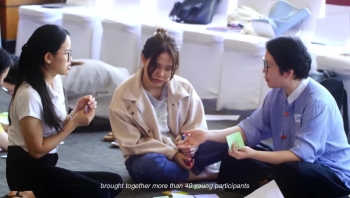VN modern journalism: 7 principles in professional skills and ethics
"Journalist" is a sacred, precious and respectable profession. In the last 92 years, Vietnam has been so proud to have a revolutionary and humanistic journalism, contributed by generations of virtuous, responsible and devoted journalists.
 |
"Journalist" is a sacred, precious and respectable profession. (hiec.org.vn)
For today’s journalists, it is necessary to inherit and promote the glorious tradition of the country’s revolutionary journalism.
President Ho Chi Minh used to affirm that, "mentioning the press, we should first think of the journalists"; "Politics must be the key. Only with correct political ideology, does the cadre do other things in good manner.
“Therefore journalists should have correct political ideology”; “journalists are also revolutionary soldiers. The pen and paper are their lethal weapons", he stressed.
President Ho Chi Minh also advised journalists: "In order to make progress and to have good articles, the journalists should try their best to study and to train themselves”.
Imbued with his thought, the Party and State always attach importance to the improvement of the quality and capability of the Vietnamese journalists, considering it a decisive requirement to the role and effectiveness of the revolutionary journalism.
The fact shows that, the qualities of journalists are political ideology and professional ethics,
The journalists' capability is their professional capabability, including their occupational will, operational skills, and journalistic practice to fulfill their roles and missions.
These two things have a dialectical relationship.
The improvement of the qualities and capability of Vietnamese journalists is the close process of two components that shape ethics and skills of journalists.
Today, the development of information and communication technologies is both an opportunity and a huge challenge to the society and the press.
The number of internet users in Vietnam has reached 59 million, accounting for more than 50% of the population; The number of social network users (Facebook alone) is more than 39 million, a high level in Southeast Asia and Asia.
Thus, in terms of professional ethics, journalists are increasingly facing with the pressure and competition from social networks, which results in the pursuit of trivial tastes with the style of setting thrilling headlines, taking less consideration on the honesty, correction, and social responsibility of press and journalists.
In terms of professional capability and occupational skills, journalists must meet the increasing demands of a revolutionary, professional and modern journalism. Therefore, the management and leadership of journalism require better skills to keep up and adapt to the development of press and journalists.
In order to improve the quality and capability of Vietnamese journalists in the new situation, the Party committees at all levels, press agencies and journalists' organizations should successfully implement the following fundamental works.
First, fully grasp and deepen the principle of: absolute leadership of the Party over press activities. This is a guiding and vital principle for journalistic activities. It clearly identifies the Party's direction of: development should be attached to the management, and the management should keep up with the development, so as to improve the quality and effectiveness of the press to the society.
Second, strengthening the coordination mechanism among the Central Commission for Propaganda and Training, and the Ministry of Information and Communications & the Vietnam Journalists' Association in directing and managing press activities and journalists.
There is a need to clearly define the political responsibilities of the press and journalists, including effectively contributing to the formation of sound public opinion, the improvement of political will, knowledge and value of the Vietnamese, supporting and creating the whole nation's strength in the new era.
Furthermore, press information must be highly topical, healthy, practical, combative, humanistic with ideological orientation.
Third, journalists and press agencies should be the real bridges connecting the people with the Party and State, creating a broad social forum to promote democracy and cultural values imbued with national identities.
Their works should be able to help raise people’s intellectual level, support and encourage people and organizations participating in implementing the revolutionary tasks.
The press should rely on the people and create favorable condition for the people to supervise and evaluate the efficiency of press, as well as be a tool for the people to practice their right of accessing to information and their freedom of speech in accordance with the law.
Fourth, sufficient attention should be paid to improving the quality of training, especially ethics and morality; strengthening exchanges and international cooperation, selectively applying experience of other countries; closely combining different stages of: training, improving, and deploying journalists in a close and continuous system.
 |
President Ho Chi Minh meeting journalists (source: CPV)
Fifth, the press agencies should develop in the direction of multimedia, timely updating new information, applying advanced technology in stages of press activities.
They should keep innovating to improve the quality and efficiency of various types and products of the press, strengthening the competitiveness and building up a strong press and communication force, to effectively cope with distorted information.
Sixth, relevant agencies should coordinate with the Vietnam Journalists Association at all levels to intensify the management of journalists; upholding the responsibility of the leaders, adhering to the principles and purposes of the newspaper.
Attention should be paid to training both the quality and competence of journalists during their working process.
Seventh, relevant agencies must improve the efficiency of studying and following Ho Chi Minh’s ideology, ethics, and style, coupled with the strict implementation of the 2016 Press Law and the 10 articles of the Regulations on professional ethics of journalists in Vietnam.
Besides, they need to closely coordinate with the functional departments to strengthen inspection and supervision and timely reward good examples, as well as prevent and strictly handle violations.
With its functions and duties, the Vietnam Journalists Association always pays attention to protecting the legitimate rights and interests of its members, especially the right to practice their skill in accordance with the law, considering it an important and urgent task.
In case journalists are obstructed, threatened or attacked while conducting their function, the Standing Board of the Vietnam Journalists Association will promptly asks functional agencies to inspect and strictly handle any wrongdoings.
Each journalist, each press agency has its own way to serve, to survive, and to overcome the challenges in the digital age. However, the basic principles and the universal values, particularly the professional ethics and the law must always be seriously practiced.
A journalism which is highly combative and humanistic is built on law and ethics. In the time of changes, pressures, and digital information, these traits should be ever highlighted.
It is time for the journalism to both serve the cause of national development and maintain peace in the society, peace in each family, and peace in the people’s hearts and minds./.
( VNF/National Defense Journals )
Recommended
 National
National
Vietnam News Today (May 21): Vietnam Attends UN Commission on Crime Prevention and Criminal Justice's 34th Session
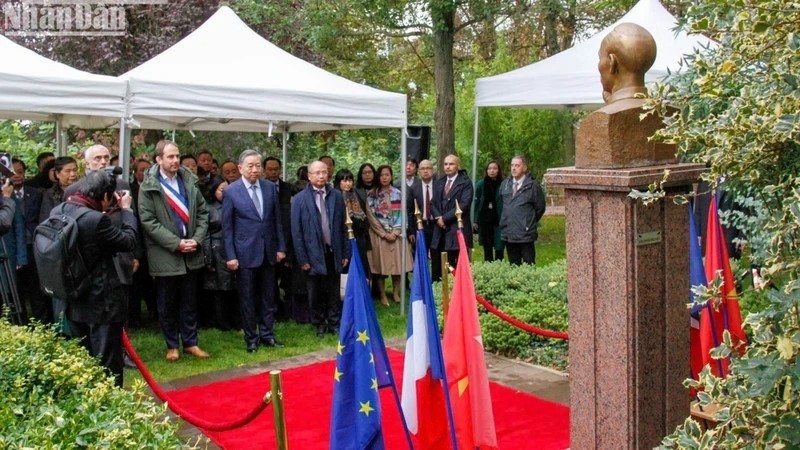 National
National
Deep Affection of International Friends
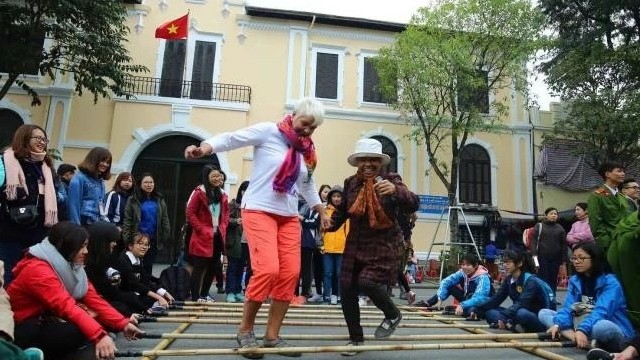 National
National
Vietnam News Today (May 20): Hanoi Named Top Cultural, Artistic Destination in Asia
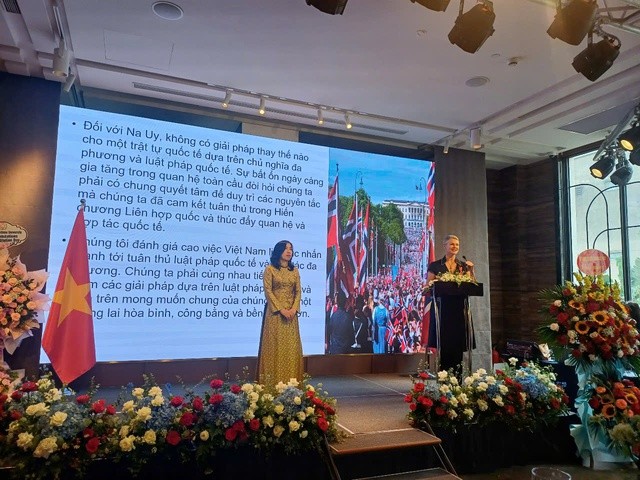 National
National
Vietnam News Today (May 19): Norway Hails Vietnam’s Continued Emphasis on Upholding International Law
Popular article
 National
National
Vietnam News Today (May 18): Cannes 2025: Vietnam Rising as New Destination for International Filmmakers
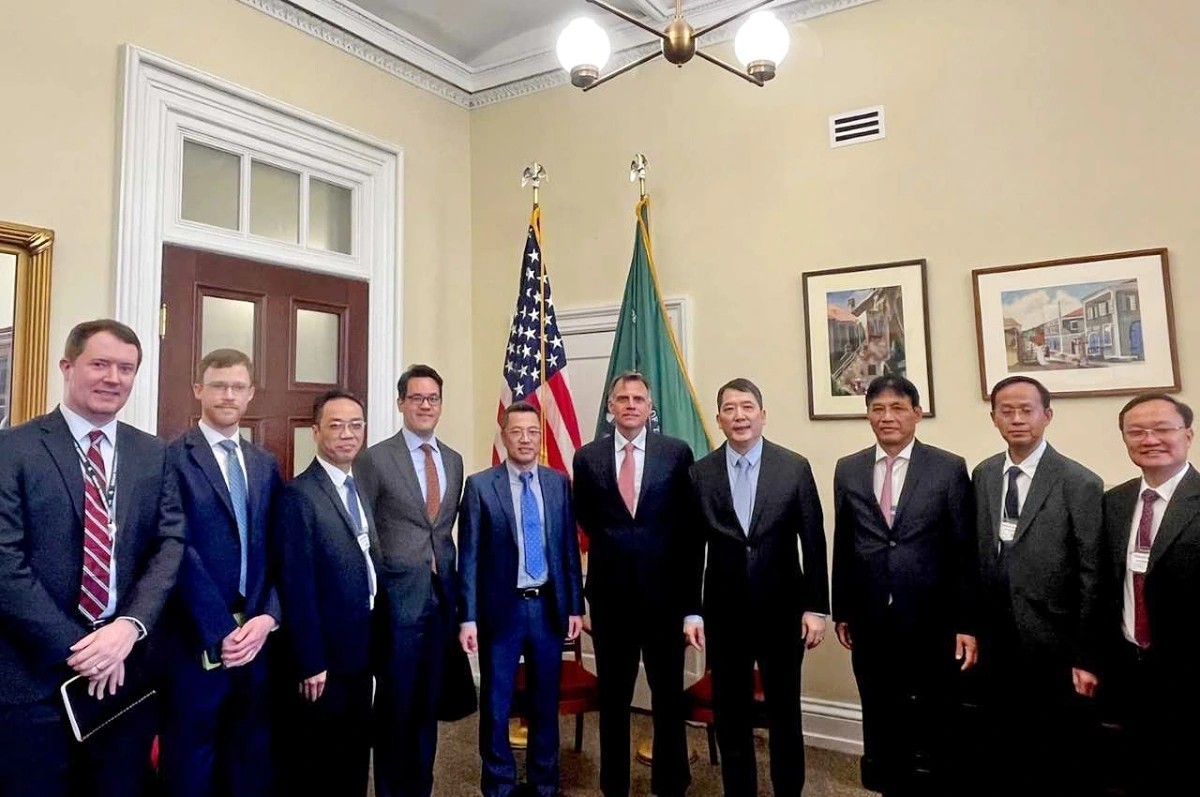 National
National
Vietnam News Today (May 17): Vietnam and United States Boost Financial Cooperation
 National
National
Strengthening Vietnam-Thailand Relations: Toward Greater Substance and Effectiveness
 National
National




